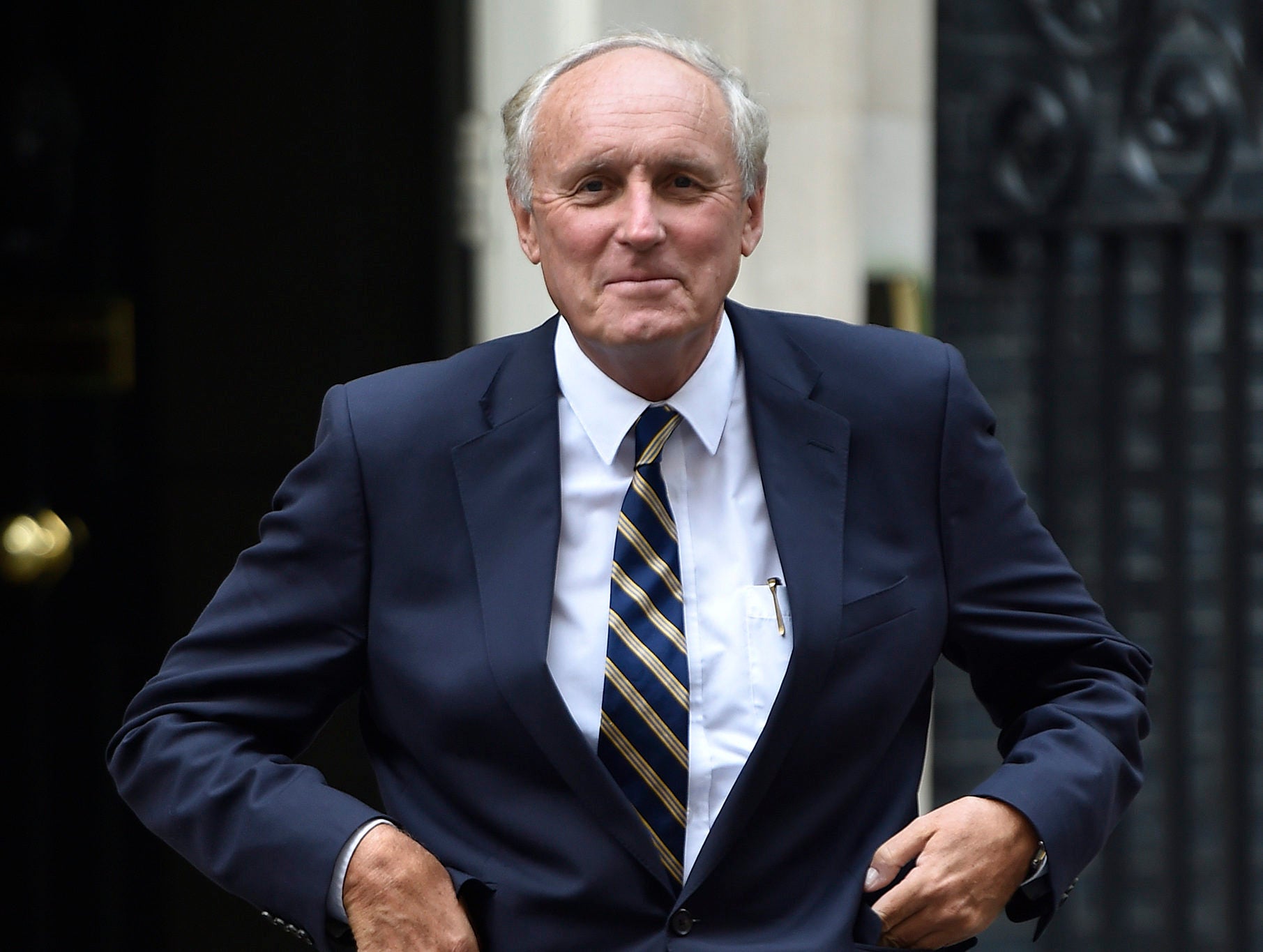
This year has been a year of great change in the media industry, with industry titans stepping down and publications and broadcasters swapping hands.
Below is a round-up of some of the biggest stories of 2018.
January
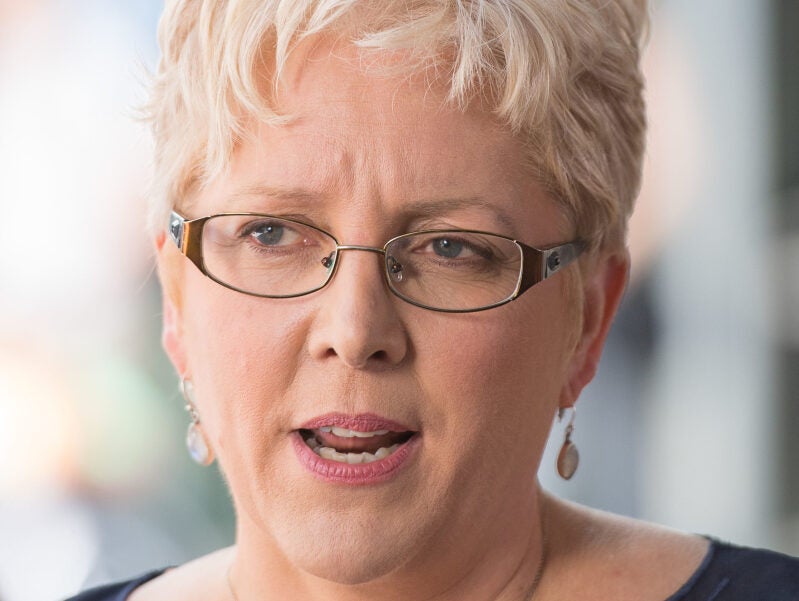
Carrie Gracie. Picture: Dominic Lipinski/PA Wire
BBC China editor Carrie Gracie resigned in protest at the corporation’s “secretive and illegal” pay culture, sparking a conversation about its equal pay achievements that reached Parliament.
Six months later, Gracie received an apology from the BBC and an admission that it was underpaying her compared to other international editors.
Also this month: Facebook announced changes to its news feed algorithm which meant fewer posts from news organisations and other businesses would be shown to users, focusing instead on “meaningful social interactions”.
February
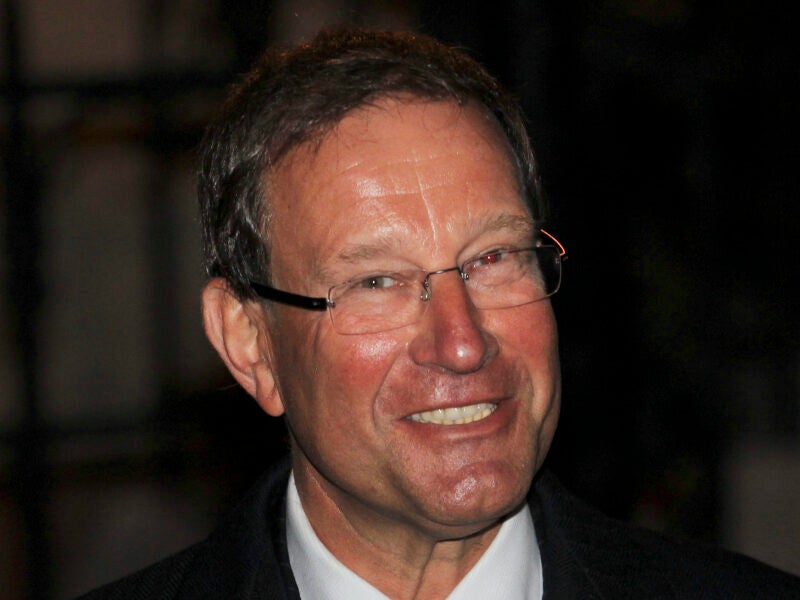
Richard Desmond smiles as he leaves after giving evidence to the Leveson Inquiry at the High Court in London January 12, 2012. Picture: Reuters/Olivia Harris
Trinity Mirror agreed a £127m deal to take over Express Newspapers, acquiring the Daily and Sunday Express, Daily Star and Daily Star Sunday and celebrity magazines Ok!, New!, and Star, on top of its existing Mirror titles.
Northern & Shell chairman Richard Desmond (pictured), who sold the titles, described it as a “transformational transaction” and “a logical and natural next step in the evolution and consolidation of the media sector”.
Also this month: It was the “end of an era” as regional publisher CN Group announced it was being sold to Newsquest. The NUJ claims Newsquest has since made more than 100 people redundant at the group.
March
The Government formally closed the Leveson Inquiry for good as then Culture Secretary Matt Hancock said the “terms of reference” for Leveson Two had “largely been met”.
An attempt by press reform campaigners to force the Government to reconsider its decision was later rejected by High Court judges.
Also this month: The Observer, Channel 4 News and New York Times broke the Cambridge Analytica scoop which has since seen Facebook fined £500,000 for its role in the data scandal. Facebook is appealing the fine. The joint effort won the Investigation of the Year prize at this year’s British Journalism Awards.
Plus music magazine NME went online-only after publisher Time Inc UK (now TI Media) said it was “no longer financially viable”.
April
All major national and regional news publishers, magazine publishers and broadcasters published their gender pay and bonus pay gaps for the first time after new Government legislation came into force.
The Economist Group had the highest median wage gap favouring men, while ITN had the highest bonus gap, sparking criticism from the likes of Channel 4 News presenter Cathy Newman and ITV News at Ten’s Julie Etchingham.
Also this month: Journalist Martin Lewis announced he was taking Facebook to court over claims it had published scam adverts using his name to con people out of money.
May
Fresh from taking over Express Newspapers, Trinity Mirror rebranded as Reach to reflect how it had “evolved significantly”.
Simon Fox, chief executive of the UK’s largest regional publisher, said: “The Reach name says a lot about who we are. Through our content we reach millions of people every day, and we reach hearts and minds across the cities and communities that we serve.”
Also this month: Matthew Wright left his Channel 5 current affairs show The Wright Stuff after 18 years. The format has since been taken over by Jeremy Vine.
June
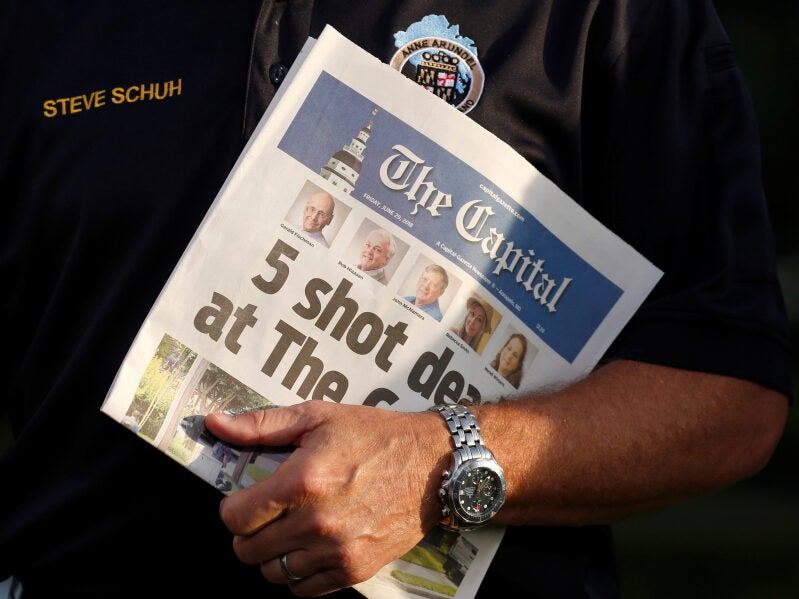
Steve Schuh, the County Executive of Anne Arundel County, Maryland, holds a copy of the Capital Gazette as he is interviewed the day after a gunman killed five people and injured several others at the newspaper’s offices, in Annapolis, Maryland, U.S., June 29, 2018. Picture: Reuters/Joshua Roberts
Five staff members – four journalists and a sales assistant – at US weekly newspaper Capital Gazette were killed in a shooting at their newsroom.
Just hours later, journalists tweeted out: “Yes, we’re putting out a damn paper.”
The suspect, Jarrod Ramos, reportedly targeted the newspaper with online threats for years after a defamation suit he filed against it was denied. He has pleaded not guilty to five counts of first-degree murder and faces trial in June next year.
Also this month: A group of national newspaper publishers – Times and Sun publisher News UK, the Guardian and the Telegraph – joined together for the first time to launch a joint advertising platform able to compete with the Duopoly. Reach has since joined the The Ozone Project.
July
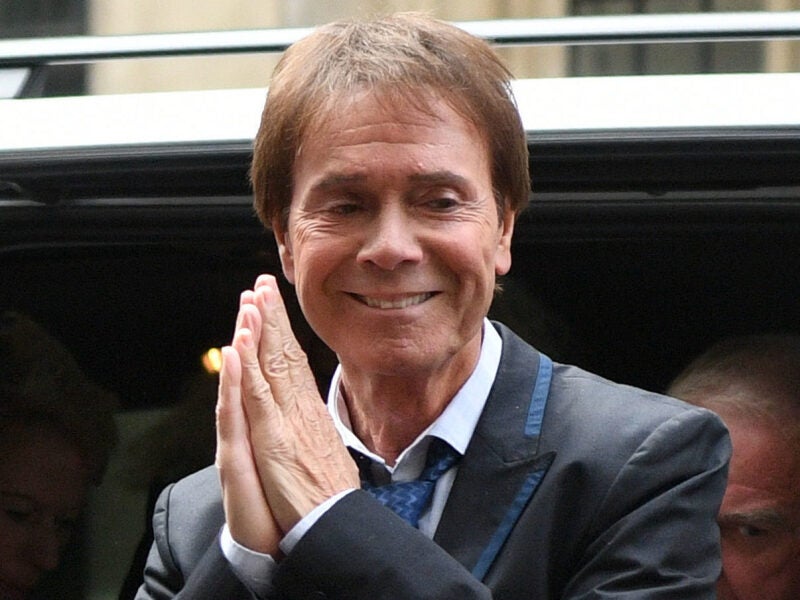
Cliff Richard has won his privacy battle with the BBC over coverage of police raid on his home, with High Court awarding him £210,000 in damages. Picture: Victoria Jones/PA Wire
Sir Cliff Richard won a privacy battle against the BBC and was awarded £210,000 in damages at the High Court.
The case centred on the BBC’s “somewhat sensationalist” 2014 coverage of a police investigation into a historical child sex assault made against him. He was never arrested and the case was dropped two years later.
BBC News director Fran Unsworth said the case marked a “dramatic shift against press freedom” but eventually decided not to appeal.
Also this month: The BBC published its second annual list of talent earning more than £150,000 and News at Ten presenter Huw Edwards took the top spot, overtaking Radio 2’s Jeremy Vine following a pay cut.
However the top ten best-paid journalists at the corporation were still all men, despite the BBC making “concerted” efforts to improve its gender pay gap.
August
Paul Dacre (pictured, top), the Daily Mail’s highly influential editor of 26 years, stepped down two months after announcing his planned departure.
Dacre bid staff farewell with a letter thanking them for their “selfless, superlative journalism” and calling them “Britain’s finest team of professional journalists”.
He has been replaced by former Mail on Sunday editor Geordie Greig, who has been credited for toning down the newspaper’s approach to Brexit.
Also this month: Another major departure as Eddie Mair left the presenting chair on BBC Radio 4’s current affairs programme PM after 20 years to join talk radio station LBC for a new drivetime show.
September
Comcast won the long-running battle for control of Sky after beating Fox with a £30bn bid for the broadcaster.
It later said it stood by its previous commitments to maintain funding for Sky News over ten years and create a new board to safeguard editorial independence.
Also this month: The Sunday Herald closed after 19 years to make way for a seven-day offering of The Herald. Publisher Newsquest also launched the Sunday National.
October
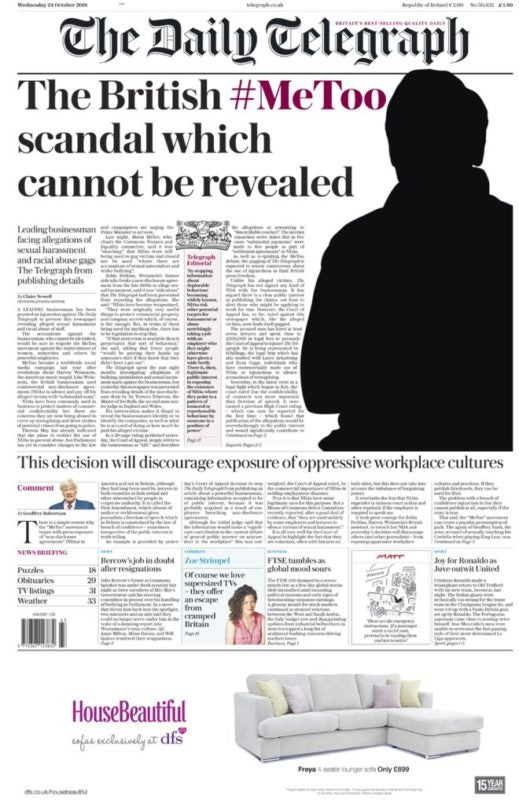
The Telegraph revealed it was the subject of a gagging order by a top businessman, describing it on its front page as “the British #MeToo scandal which cannot be revealed”.
The businessman in question was subsequently revealed by Lord Hain, using parliamentary privilege in the House of Lords, as Sir Philip Green, owner of Topshop and Topman.
The Telegraph has since asked Green, who denies any “unlawful sexual or racist behaviour”, to drop his injunction against it.
Also this month: Former BBC News director James Harding’s slow news venture Tortoise Media smashed its fundraising target of £75,000 within hours, while Huffpost UK editor-in-chief Polly Curtis left the website suddenly for reasons still unknown.
November
One month after putting itself up for sale and receiving no satisfactory offers, regional publisher Johnston Press entered administration after deciding there was no value in its ordinary shares.
The company was then acquired by its debt holders in a pre-pack administration deal under the name JPI Media, meaning business was able to continue as normal.
Also this month: CNN correspondent Jim Acosta was barred from the White House for almost two weeks after it claimed he put his hands on a staffer when she attempted to take the microphone from him during a televised press conference with Trump.
December

David Dimbleby. Picture: BBC
Shortlist, the UK’s biggest men’s magazine by way of distribution, closed in print while its website remains as a “product recommender”.
Journalists from across the industry reacted with sadness to the news, which came just months after free music magazine NME also published its final print edition.
Also this month: David Dimbleby (pictured) chaired his final episode of Question Time on BBC after 25 years. He will be replaced by Fiona Bruce from 10 January.
Picture: Reuters/Toby Melville
Email pged@pressgazette.co.uk to point out mistakes, provide story tips or send in a letter for publication on our "Letters Page" blog
